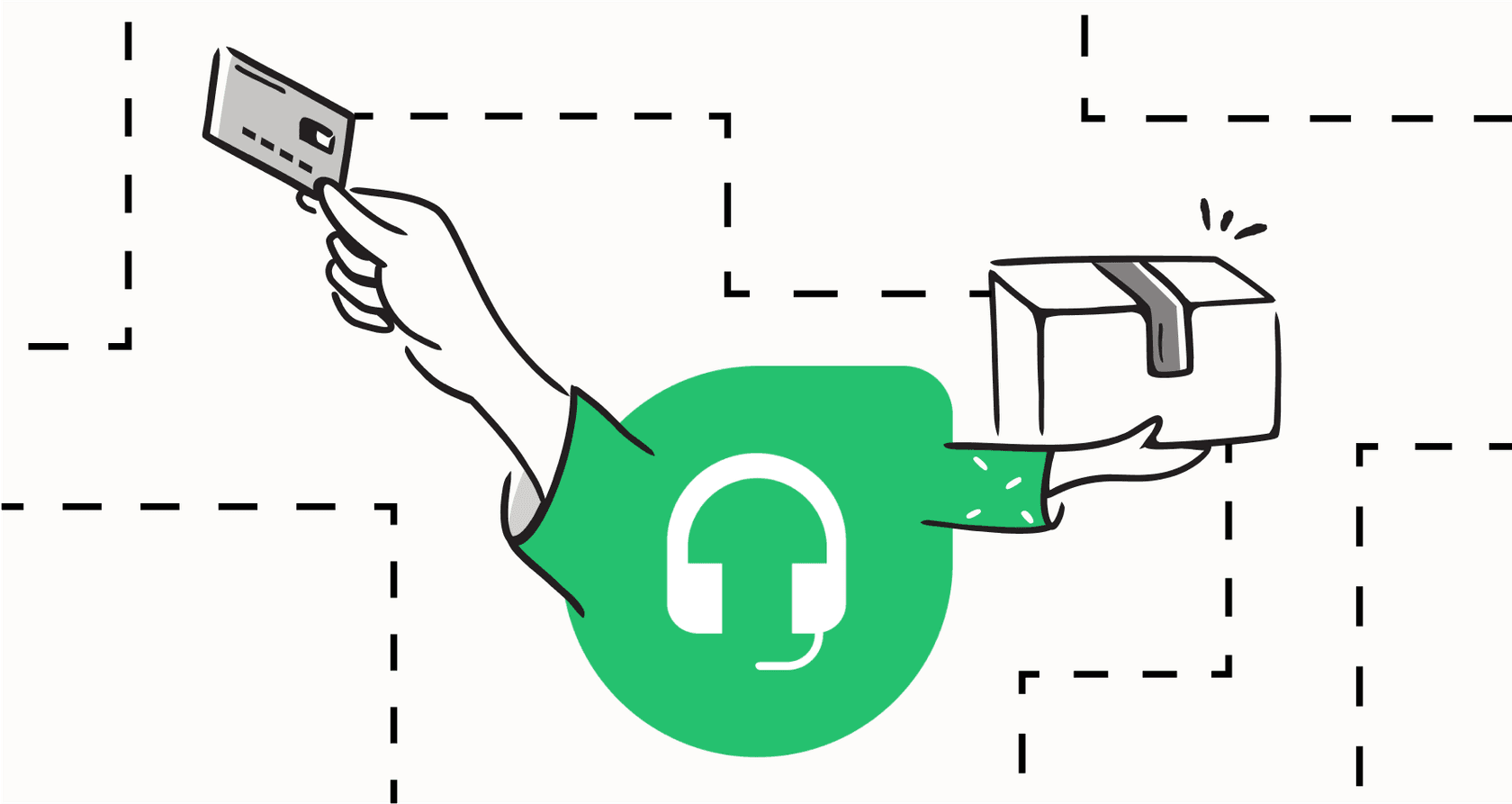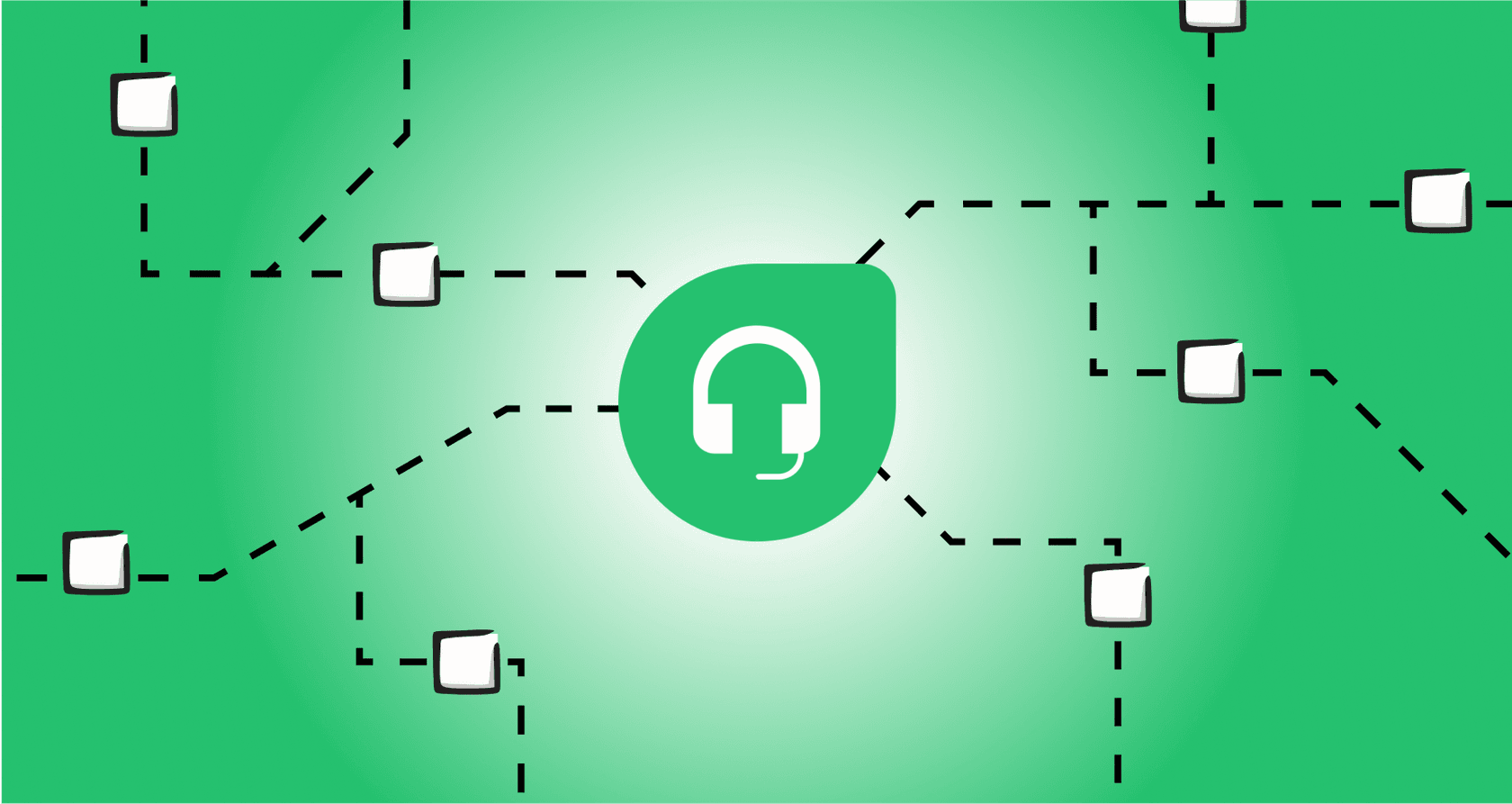Freshdesk vs Zendesk: The ultimate comparison guide for 2026

Stevia Putri
Last edited January 16, 2026

Your support team is growing, and now you’re facing the big one: picking the right help desk software. It feels like a huge commitment, right? You’re not just buying a tool; you’re laying the groundwork for your entire customer experience for the next few years. And in this space, two names keep popping up everywhere: Freshdesk and Zendesk.
They’re the giants, the go-to options for thousands of companies. But which one is actually the right fit for you? This isn’t just about ticking boxes on a feature list. It’s about figuring out how each platform will feel for your agents every single day, whether it can grow with you, and what it’s really going to cost when all is said and done.
This guide cuts through the noise. We'll give you a straightforward comparison of their features, AI smarts, scalability, and true cost. And we’ll even float an idea: maybe you don’t have to go through the headache of ripping out and replacing your current system at all.
What is Freshdesk?
Freshdesk is a cloud-based customer support tool from the Freshworks family. It’s known for its clean, friendly interface that you can pretty much figure out straight away. It's a big reason why teams who want to get moving quickly, without a massive training manual, tend to gravitate toward it.
It bundles all the essentials into one package. You get omnichannel support (so email, chat, phone, and social media all land in one place), a solid ticketing system, automations, and a self-service knowledge base. This all-in-one approach has made it a favorite for small and mid-sized businesses. At its core is Freddy AI, its built-in assistant that helps agents with everyday tasks and helps optimize repetitive workflows.
If your team is already using it, you can give it a serious boost by connecting an AI agent that pulls knowledge from all your other company apps through the eesel AI Freshdesk integration.
What is Zendesk?
Zendesk is a customer service powerhouse, often seen as an industry standard for larger, enterprise-level companies. Where Freshdesk feels like an all-in-one box, Zendesk is more like a set of specialized components. Its main offering, Zendesk Suite, combines several tools: Zendesk Support for tickets, Guide for the knowledge base, Talk for phone, and Chat for live messaging.
This modular setup gives it a ton of power and flexibility. Zendesk is famous for its customization options, a massive marketplace of integrations, and advanced analytics that let data-heavy teams tweak just about everything. Its own AI is built to streamline these complex operations, from routing tickets intelligently to giving agents helpful context. For big companies managing multiple brands or complex global support, Zendesk is built to handle that kind of scale with proven reliability.
And just like with Freshdesk, you can plug in a more versatile AI to your existing setup with the eesel AI Zendesk integration.
A detailed comparison of Freshdesk vs Zendesk
Beyond the marketing pitch, what really matters is how these tools perform day-to-day. Here’s a look at how the two platforms really stack up in the areas that count.
Ticket management and collaboration
Let's start with the main event: managing customer tickets. Both platforms are excellent at this, but they go about it in different ways.
-
Freshdesk gets a lot of love for its clean, unified inbox that gives agents a clear view of their queue. It has neat features like agent collision detection (so two people don't accidentally reply to the same email) and easy-to-use canned responses. Collaboration is built into the workflow, with Freshconnect helping teams communicate effectively.
-
Zendesk really stands out with its "Side Conversations" feature. This lets an agent start a Slack thread or email chain with another team directly from the ticket. All the context stays in one place, and the customer doesn't see the internal back-and-forth. It’s a lifesaver for those tricky problems that need input from engineering or finance. The interface is professional and feature-rich, providing high-performance teams with all the tools they need to manage complex queries effectively.
Both platforms are designed to keep collaboration and knowledge largely within the help desk. When an agent needs to check an internal wiki or find a spec sheet, they typically search through other apps, which is where adding a complementary AI layer can really help.
Reporting and dashboards
You need to know how your team is doing and what your customers are saying. Both platforms have powerful analytics, but they cater to different needs.
-
Freshdesk gives you dashboards that make sense right out of the box. Most teams can get a clear picture of important metrics like resolution time and customer satisfaction without needing extensive training. This focus on intuitive reporting makes it easy to monitor performance and make data-driven decisions quickly.
-
Zendesk is an absolute beast for analytics, thanks to a tool called Zendesk Explore. It lets you build incredibly deep, custom reports tailored to almost any business question you can think of. For organizations that live and breathe data, this is a huge plus. This level of sophistication is a significant advantage for organizations that prioritize in-depth, data-driven insights.
Customization and integrations
Both Freshdesk and Zendesk have huge app marketplaces with over 1,000 integrations each, so connecting them to your other tools is rarely an issue.
The bigger difference is how much you can tweak the platforms themselves.
-
Freshdesk makes it easy to customize your customer portal's branding and set up workflows without needing a developer. It offers a great balance of ease-of-use and flexibility for teams that want to get set up quickly while still maintaining their brand identity.
-
Zendesk was built from the ground up for deep customization. Its open API lets big companies build completely custom workflows, integrate with their own internal systems, and tailor the platform to their exact needs. This flexibility allows businesses to build a truly bespoke support experience, making it a highly scalable choice for organizations with specific technical requirements.
The AI and automation showdown
AI isn't just a buzzword anymore; it's a core part of a modern help desk. Let's look at what Freshdesk and Zendesk offer out of the box, and how you can enhance them.
Native AI capabilities
Both platforms have their own AI assistants, but they have slightly different jobs.
-
Freshdesk's Freddy AI acts like an agent's sidekick. Its main goal is to make the frontline team more efficient by summarizing long ticket threads, drafting replies to common questions, and automatically tagging incoming tickets to get them to the right person faster.
-
Zendesk AI thinks a bit bigger, looking at the whole support system. It’s designed to optimize the entire operation by routing tickets based on what the customer is asking about, predicting their needs, and surfacing relevant help articles to solve issues before a ticket is even created.
Both Freddy AI and Zendesk AI are impressive, but they primarily focus on knowledge within their own platform. They're great at reading your help center articles and past tickets, and you can further expand their reach by integrating them with other knowledge sources.
The challenge of siloed knowledge
When your support AI primarily sees the "official" knowledge base, there are opportunities to make it even more comprehensive. The most current answers are often found across engineering docs, marketing briefs, or even conversations in Slack. Bridging this knowledge gap ensures agents have everything they need without hunting through other apps.
This is where a complementary AI solution makes a lot of sense. Instead of only searching inside your help desk, you can connect an AI that learns from all of your company's knowledge, wherever it lives.
That's exactly what eesel.ai does. It plugs into your Freshdesk or Zendesk account and learns from your tickets, but it also connects to Confluence, Google Docs, Slack, and dozens of other apps. It effectively creates a single, unified brain for your entire company, giving both your agents and your AI complete, accurate answers pulled from every source.
Even better, you can get it up and running in minutes, not months. Setting up eesel AI’s one-click integration lets you start immediately. It begins learning from your data right away, with no complicated setup needed.
Scalability and total cost of ownership
As your business gets bigger, your help desk has to keep up. Zendesk is really built for that kind of enterprise growth, with the security and customization that large organizations need. Freshdesk is a fantastic, robust platform that powers support for thousands of companies, offering tiered plans that scale well with many team sizes.
When you're looking at the price, it’s important to think about the total value each platform provides.
-
Freshdesk has more affordable plans to start, which is a huge draw for smaller teams. As you grow, Freshdesk offers tiered options that allow you to unlock more advanced features, ensuring you only pay for what you need as your requirements evolve.
-
Zendesk has a higher entry price, but its plans are designed to be comprehensive for larger teams. The value of Zendesk lies in its ability to serve as a robust, enterprise-grade foundation for your customer service operations as they grow in complexity.
This is another area where a plug-in AI solution like eesel.ai can be a great addition. You get simple, predictable pricing that isn't based on ticket volume, letting you scale your AI usage alongside your chosen help desk without concern for fluctuating costs.
Freshdesk vs Zendesk pricing comparison
Let's talk numbers. Both charge per agent, per month, and you can usually save some money by paying for the year upfront. Here's a quick snapshot of their main plans to give you an idea.
| Plan level | Freshdesk (Omnichannel) | Zendesk (Suite) | Key features |
|---|---|---|---|
| Entry | Growth: $29/agent/mo | Suite Team: $55/agent/mo | Ticketing, Basic AI, Multi-channel support |
| Mid-tier | Pro: $69/agent/mo | Suite Professional: $115/agent/mo | Advanced workflows, Custom reporting, SLA management |
| Enterprise | Enterprise: $109/agent/mo | Suite Enterprise: $169/agent/mo | Sandbox, Custom roles, Advanced AI/Security |
Note: Prices are based on annual billing as of 2026. You should always check their official sites for the most current pricing.
This video provides an in-depth comparison of Freshdesk vs Zendesk, covering ticketing, AI, and more to help you choose the right platform.
The verdict: which one is right for you?
So, after all that, what's the final call? It really comes down to your team's size and needs.
-
Go with Freshdesk if: You're a small to mid-sized business that wants a user-friendly, all-in-one solution that's reliable, easy to set up, and offers great value.
-
Go with Zendesk if: You're a growing or enterprise company that needs deep customization, powerful analytics, and a trusted, industry-leading platform that can handle complex, global support at scale.
The smarter choice: upgrade your help desk instead of replacing it
The Freshdesk vs Zendesk debate often assumes you have to choose between simplicity and power. Both are impressive, mature platforms that can be further enhanced by centralizing your company’s knowledge.
Instead of replacing your help desk, you can simply make it smarter with a complementary tool.
eesel.ai gives you the best of both worlds. It’s an intelligent layer that plugs right into the tools you already have. With eesel AI, you can:
-
Unify your knowledge: Give your AI and agents access to information from everywhere, not just what's in your help desk.
-
Go live in minutes: It’s a self-serve platform that connects with one click. No lengthy onboarding process required.
-
Test with confidence: Use its simulation mode to see your exact automation rate and ROI before you ever show it to a customer.
-
Stay in complete control: You decide exactly which types of questions to automate and can fine-tune the AI's personality to perfectly match your brand's voice.
By upgrading with eesel AI, you get powerful, context-aware AI that works within the ecosystem of your chosen help desk. You keep the platform you already know and just add the intelligence you need to provide even better support.
Ready to see what your help desk is really capable of? Try eesel AI for free and build your first AI agent in under 5 minutes.
Frequently asked questions
Freshdesk is an accessible option for smaller teams due to its user-friendly interface and quick setup. Zendesk is a powerful, industry-standard solution designed to scale effortlessly with growing organizations and complex support needs.
Freshdesk's Freddy AI helps agents maintain high efficiency by summarizing tickets and drafting replies. Zendesk AI focuses on system optimization, such as intelligent ticket routing and predicting customer needs. Both, however, are limited to knowledge within their own platforms.
Freshdesk provides intuitive customization that covers most support needs, while Zendesk offers deeper customization options thanks to its modular setup and open API, making it suitable for complex, enterprise-level workflows.
Yes, both Freshdesk and Zendesk offer extensive app marketplaces with over 1,000 integrations each. This means connecting them with your existing CRM, project management, or communication tools is generally not an issue.
Freshdesk offers tiered plans with a lower entry cost, making it highly attractive for smaller teams, while providing options to scale. Zendesk offers comprehensive plans that provide robust value for growing teams looking for long-term scalability and an enterprise-grade feature set.
No, not necessarily. Instead of replacing your entire help desk, you can integrate a versatile AI solution like eesel AI directly into your existing Freshdesk or Zendesk setup. This allows you to unify knowledge from all company apps, not just your help desk, enhancing capabilities without a full migration.
Share this post

Article by
Stevia Putri
Stevia Putri is a marketing generalist at eesel AI, where she helps turn powerful AI tools into stories that resonate. She’s driven by curiosity, clarity, and the human side of technology.





